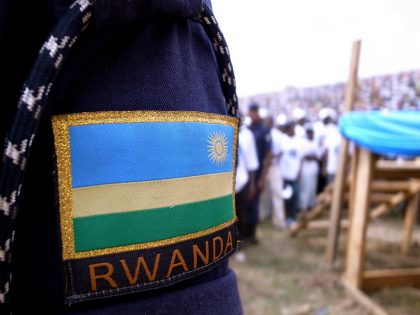
Stories as refuge
Rwandan writer Scholastique Mukasonga chronicles life, death, return and grief in her story collection, 'Igifu.'

Rwandan writer Scholastique Mukasonga chronicles life, death, return and grief in her story collection, 'Igifu.'

The UKs deportation pact with Rwanda is being likened to a "human trafficking deal." It reflects the state of Rwandan politics.

The international community's limited attention span is laser-focused on jihadism in the Sahel and the imploding Horn of Africa. But interstate war is potentially brewing in the eastern DRC.

Rwandan-Namibian writer and founder of Doek! arts organization shares his sober routine and dramatic daydreams.

Rwanda’s proposed refugee deal with Britain is another strike against President Paul Kagame’s claim that he is an authentic and fearless pan-Africanist who advocates for the less fortunate.

Gurnah’s Nobel Prize invites us to ponder Germany’s colonial past between the Scramble for Africa and the First World War in what is now Tanzania, Burundi, and Rwanda.

A film about young Rwandan-Canadian creates more questions than it answers, particularly about identification, belonging, and memory.

In this interview with Rasna Warah, journalist Michela Wrong debunks the myth of Rwanda as a model developmental state and a poster child for Western aid.

How Rwandan history is told—and who does the telling—is important as it determines who is able to participate in conversations about the past.

A Kenyan investigative journalist reflects on the capture of a genocidaire in Paris after 26 years on the run and its significance to the families of the victims left in his wake.

Because of the 1994 genocide, Rwanda occupies a complicated place in the world’s imagination. A new film, about the preceding 1973 pogrom, wants to demystify that view. Does it succeed?

Rwanda is juking its development statistics as the international community turns a blind eye to the human rights abuses of Paul Kagame's authoritarian rule.

On national anniversaries and democratic survival.

If Rwandan support for the RPF and Kagame is so universal and genuine, why the murder, frequent arrest, torture and imprisonment of opposition politicians and investigative journalists?

Judi Rever's account of the Rwandan genocide and its aftermath challenges the official narrative.

In recent years, Rwanda and Ethiopia have been some of the largest recipients of aid money from the UK and US governments, as well as some of the West's leading philanthropies, including the Gates Foundation.

The Arsenal 'Visit Rwanda' sponsorship deal is government image management 101.

It is worth revisiting the context for the mass killings, how historians have studied it since and casting a revisionist eye.

Paul Kagame and Benjamin Netanyahu are enablers of each other’s worst behavior, whether providing cover for each other's domestic policies or how Israel treats African migrants and refugees.

The 1994 genocide was an unthinkable mayhem that still frames Rwanda, including how the government will write the narrative until 2034.